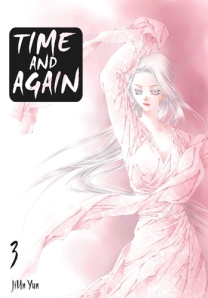There are only two really eye-catching debuts in the August 2010 edition of Diamond’s Previews catalog, but they’re pretty choice.
 First is Osamu Tezuka’s Ayako from Vertical:
First is Osamu Tezuka’s Ayako from Vertical:
“Set in the aftermath of World War II, Ayako focuses its attention on the Tenge clan, a once powerful family of landowners living in a rural community in northern Japan. The war and the American occupation have begun to erode the fabric that binds them all together. And when the family seems to have completely fallen apart, they decide to turn their collective rage on what they believe to be the source of their troubles – the newet member of the Tenge family, the youngest sister Ayako.”
This will be a done-in-one 704-page collection of the three-volume series that ran in Shogakukan’s Big Comic in 1972 and 1973. (Page 326.)
 Ages after Short Cuts and Secret Comics Japan, Viz returns to Usumaru Furuya with Genkaku Picasso:
Ages after Short Cuts and Secret Comics Japan, Viz returns to Usumaru Furuya with Genkaku Picasso:
“Hikari Hamura, nicknamed Picasso because of his natural artistic abilities, survived a horrible accident, but his friend Chiaki wasn’t so lucky. Suddenly, Chiaku appears in front of him and tells him in order to keep living he must help the people around him. Can Hikari save people with his sketchbook and a 2B pencil?”
This three-volume series originally ran in Shueisha’s Jump SQ in 2008 and will be released in Viz’s Shonen Jump imprint. (Page 329.)





























